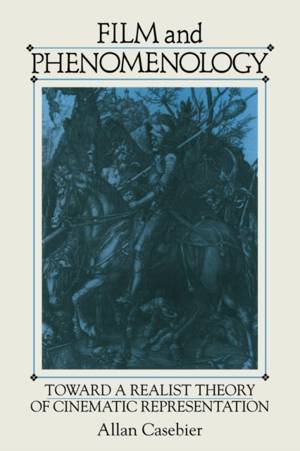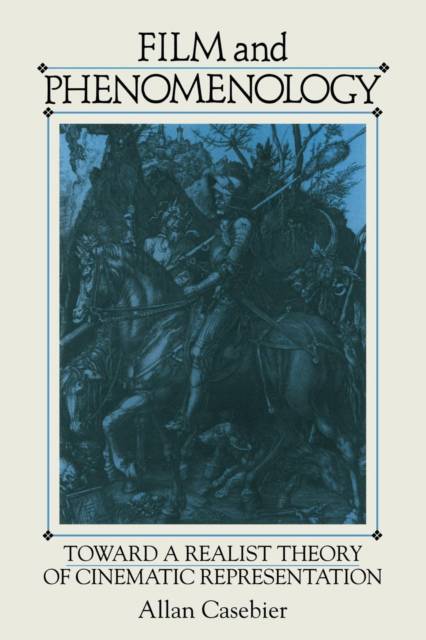
Bedankt voor het vertrouwen het afgelopen jaar! Om jou te bedanken bieden we GRATIS verzending (in België) aan op alles gedurende de hele maand januari.
- Afhalen na 1 uur in een winkel met voorraad
- Gratis thuislevering in België vanaf € 30
- Ruim aanbod met 7 miljoen producten
Bedankt voor het vertrouwen het afgelopen jaar! Om jou te bedanken bieden we GRATIS verzending (in België) aan op alles gedurende de hele maand januari.
- Afhalen na 1 uur in een winkel met voorraad
- Gratis thuislevering in België vanaf € 30
- Ruim aanbod met 7 miljoen producten
Zoeken
Film and Phenomenology
Towards a Realist Theory of Cinematic Representation
Allan Casebier, Casebier Allan
€ 40,45
+ 80 punten
Omschrijving
In Film and Phenomenology, Allan Casebier develops a theory of representation first indicated in the writings of the father of phenomenology, Edmund Husserl, and then applies it to the case of cinematic representation. This work provides one of the clearest expositions of Husserl's highly influential but often obscure thought. It also demonstrates the power of phenomenology to illuminate the experience of the art form unique to the twentieth-century cinema. Film and Phenomenology is intended as an antidote to all hitherto existing theories about the nature of cinematic representation, whether issuing from classic sources such as the film theory of Andre Bazin or the post-structuralist synthesis of Lacanian psychoanalysis, Barthesian textual analysis and Metzean cine-semiotics. Casebier shows how a phenomenological account of representation will further the aims of any film theory. Developing a viable feminist film theory, legitimising the documentary, answering the challenge of Derridean deconstruction, properly theorising narrativity, Film and Phenomenology argues that theory of film must be Realist both with respect to epistemology and ontological issues. In this way, this work runs contrary to the whole course of contemporary film theory, which has been deeply anti-Realist.
Specificaties
Betrokkenen
- Auteur(s):
- Uitgeverij:
Inhoud
- Aantal bladzijden:
- 176
- Taal:
- Engels
- Reeks:
Eigenschappen
- Productcode (EAN):
- 9780521108546
- Verschijningsdatum:
- 9/04/2009
- Uitvoering:
- Paperback
- Formaat:
- Trade paperback (VS)
- Afmetingen:
- 152 mm x 229 mm
- Gewicht:
- 267 g

Alleen bij Standaard Boekhandel
+ 80 punten op je klantenkaart van Standaard Boekhandel
Beoordelingen
We publiceren alleen reviews die voldoen aan de voorwaarden voor reviews. Bekijk onze voorwaarden voor reviews.









